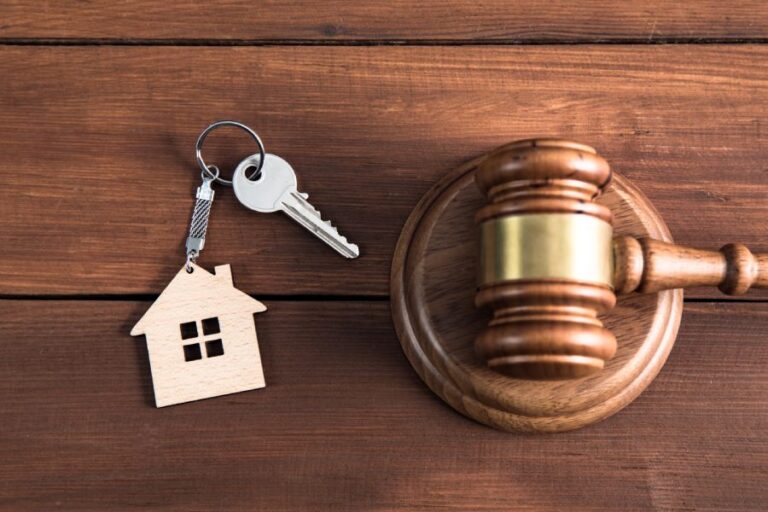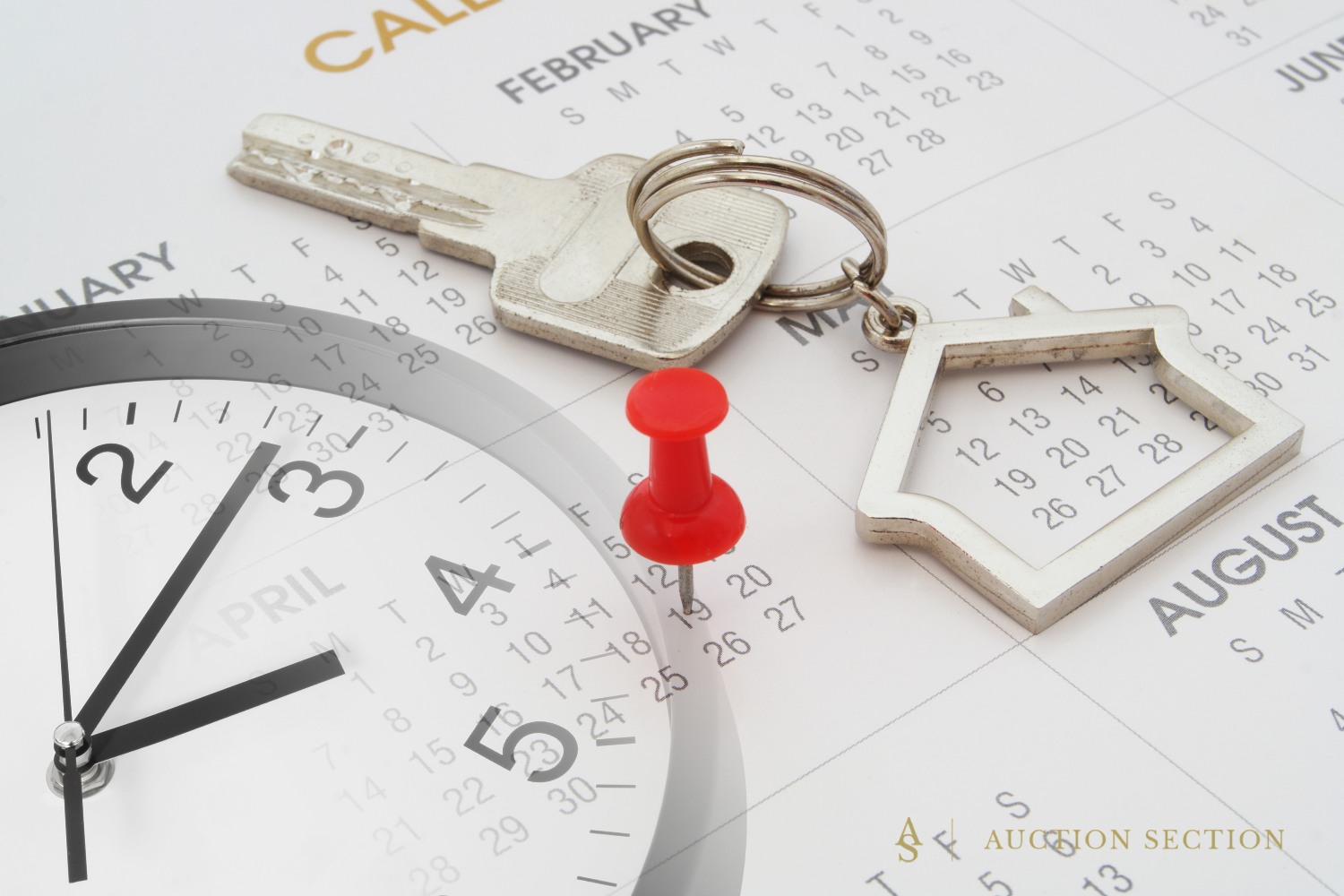Selling a house can often be a slow and stressful experience. Traditional home sales may drag on for months or even years, involving lengthy negotiations and uncertain outcomes. Auctions provide a faster, more transparent alternative, where competitive bidding sets a clear, market-driven price.
However, many sellers worry about what happens if their house doesn’t sell at auction. Understanding the reasons behind a no-sale outcome, the auction process, and your options afterward can help you stay calm and make informed decisions.
This blog covers everything you need to know when your property doesn’t sell at auction and guides you on how to move forward successfully.

Common Reasons Why Houses Don’t Sell at Auction
Several reasons might cause a property to fail to sell at auction, including high reserve prices, low buyer interest, foreclosure properties, and economic factors. Here’s more about these causes:
1- Reserve price
The reserve price is the minimum amount the seller is willing to accept. If bidding doesn’t reach this price, the property remains unsold.
Sometimes, the property remains unsold if the reserve or guide price is too high. In this case, many bids will be rejected, and nobody may make you the deal you planned.
The auction house determines the guide price, which may be higher or lower than the reserve price, and shares this figure with potential buyers. A guide price that is too high may be off-putting for potential bidders.
A low guide price may also be problematic because it may suggest problems with the property that cannot be immediately seen.
2- Low buyer interest
Low buyer interest may result from insufficient marketing, poor property, or unfavorable market conditions.
To gauge this interest, auction houses or real estate agencies monitor it by tracking viewing requests, general inquiries, and applications. By doing this, the auctioneer may predict that the bidding will not reach a suitable level.
3- Foreclosure properties
Foreclosure sales can discourage buyers if there are possible issues. Problems like unclear ownership, court cases, and unreported damages might cause hesitancy and ambiguity.
4- Economic factors
An underperforming real estate market or rising interest rates can reduce buyer activity at auctions. Other economic factors can also contribute to low engagement, including poor property presentation, high reserve prices, and lack of marketing.
What Happens Immediately After a House Doesn’t Sell?
If your property doesn’t sell at auction, it is officially “passed in.” But this is not the end of the road. You still have several options.
- The Property Is “Passed In”: When the auction ends without a sale, the auctioneer will announce the property is “passed in.” This means the highest bid did not meet the reserve price, or there were no bids.
- Post-Auction Negotiations: Often, interested buyers will still want to negotiate after the auction. You can discuss offers privately and potentially agree on a price close to your reserve.
- Relisting the Property: If negotiations fail or offers are too low, you can choose to put the property back on auction at a later date. You may also try a traditional real estate sale instead.
How to Buy Unsold Auction Property
Purchasing an unsold property can be a worthwhile opportunity for buyers willing to navigate the process. Unsold properties may be more negotiable because sellers are generally ready to sell them.
So, to buy an unsold auction property, you might do the following:
- Contact the auctioneer.
- Discuss with the seller.
- Conduct thorough due diligence.
- Secure financing.
- Take quick action.
You should ensure the property is free of liens or other legal issues, especially in the case of foreclosure properties. In addition, make sure your financing is pre-approved.
Challenges of Unsold Properties
When a property doesn’t sell at auction, it can lead to frustration and financial strain for the seller. The longer the property remains unsold, the more costs add up. Key challenges include:
- Rising Holding Costs: Ongoing expenses such as property taxes, insurance, utilities, and maintenance continue to accumulate.
- Financial Pressure: Extended holding periods can reduce your cash flow and increase debt or borrowing needs.
- Market Perception: Properties that don’t sell may be seen as undesirable or problematic by future buyers.
- Hidden Issues: Unsold properties might have structural defects, title problems, or legal complications that need resolution.
- Reduced Buyer Interest: Negative signals around the property can deter potential buyers and slow future sales.
- Emotional Stress: The uncertainty and delays can cause stress and impact your ability to plan your next move.
Addressing these challenges early can help you manage risks and improve your chances of a successful sale.
Strategies for Sellers to Prevent Unsold Auctions
To avoid the disappointment and financial stress of an unsold property at auction, sellers must take proactive steps.
Here are proven strategies to improve your chances of a successful sale:
Set a Realistic Reserve Price
Research current market trends and analyze similar property sales to determine a competitive reserve price. A price that’s too high can scare away bidders, while a realistic one encourages competition.
Boost Your Marketing Efforts
Collaborate with your auction house to create a strong, targeted marketing plan.
This should include:
- Digital campaigns (email, social media, property listing sites)
- Traditional advertising (flyers, signage, local publications)
- Direct outreach to qualified investors or buyer networks
Improve Property Appeal
First impressions matter. Enhance your property by:
- Making minor repairs (paint, fixtures, landscaping)
- Cleaning thoroughly and decluttering
- Professionally staging the space, if possible.
Pick the Right Timing
Choose an auction date that aligns with high buyer activity in your area. Avoid holidays or slow seasons. Consult with your agent or auctioneer about the best time for market exposure.
Provide Complete and Clear Information
Ensure potential buyers have all the details they need upfront, including:
- Legal documents (title, zoning, permits)
- Inspection reports
- Property disclosures
By applying these strategies, you can attract more serious buyers and increase your chances of selling your property successfully at auction.
Tips to Avoid Your House from Not Selling at Auction
- Set a fair and realistic reserve price.
- Work with experienced auction professionals
- Use a strong marketing strategy.
- Prepare your property for inspection and bidding.
- Provide clear, honest property information.

Frequently Asked Questions
Usually, yes, but check the auction contract. Withdrawal before bidding starts is often allowed.
You typically pay auctioneer fees, marketing costs, and any legal fees, regardless of the sale outcome.
Negotiations can begin immediately after the auction and may last several weeks.
Yes, lowering your reserve is common before re-auctioning or private sales.
The property is “passed in.” Consider better marketing or alternative sales methods.
Conclusion & Next Steps
Selling a house at auction is a fast and transparent way to reach a sale, but sometimes your property might not sell if bids don’t meet your reserve price. This is not the end — you have several options, including negotiating after auction, lowering your reserve, or relisting your property.
To increase your chances of success, work with experienced auctioneers who understand the market, set realistic prices, and use effective marketing strategies.
Ready to get started or need expert advice? Explore our services for Real Estate Auctions in Texas and contact our auction specialists today to learn how you can achieve the best result for your property, even if it doesn’t sell the first time at auction.


